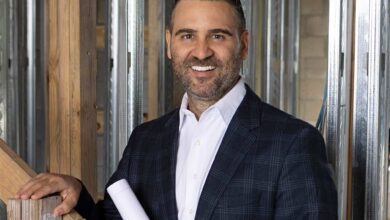Hugo Bachega Nationality: Everything You Need to Know

Hugo Bachega is a prominent journalist recognized for his impactful reporting on major global events and crises. Over the years, his work has earned him international acclaim, sparking interest in his background, career, and, notably, his nationality. For those who follow his work, understanding his roots provides valuable insight into the lens through which he approaches journalism.
What Is Hugo Bachega’s Nationality?
Hugo Bachega is Brazilian. Born in Brazil, he carries the nationality of this culturally rich and diverse country. Brazil, known for its vibrant culture, history, and dynamic society, has influenced Bachega’s worldview and shaped his unique approach to reporting.
As a Brazilian journalist working on the global stage, Bachega exemplifies the growing representation of voices from diverse cultural backgrounds in international journalism. His nationality and upbringing bring a distinctive perspective to his storytelling, enriching his ability to connect with varied audiences.
A Career Built on Global Reporting
Hugo Bachega’s Brazilian roots have not limited his career to local stories. Instead, he has gained recognition for his work as an international correspondent, covering key political, social, and humanitarian issues across the world.
His career spans coverage of critical events in regions such as:
- The Middle East: Reporting on conflicts, political shifts, and human rights challenges.
- Europe: Covering topics ranging from Brexit to refugee crises.
- South America: Documenting political upheavals and social movements in his home continent.
While his nationality ties him to Brazil, Bachega’s career reflects a truly global outlook. He has a talent for humanizing complex global issues, shedding light on the personal stories behind headline news.
Why Hugo Bachega’s Nationality Matters
Hugo Bachega’s Brazilian nationality is significant in understanding the perspective he brings to his work. Coming from a country as diverse as Brazil, he has an innate appreciation for multiculturalism and social complexity. This background likely helps him empathize with different cultures and communities, making his reporting more relatable and impactful.
Brazil’s history of resilience, adaptability, and unity in diversity may also contribute to Bachega’s ability to navigate and report on challenging and nuanced global issues. His heritage gives him an edge in presenting stories in a way that resonates with audiences across the world.
Representation of Brazilian Journalists on the Global Stage
Hugo Bachega is part of a growing wave of Brazilian journalists who are making their mark internationally. Historically, journalism on a global scale has been dominated by voices from Western countries. Bachega’s success highlights the importance of representation in media and the value of perspectives from non-Western nations.
Through his work, Bachega challenges stereotypes, provides balanced viewpoints, and helps bridge cultural divides. He demonstrates how journalists from Brazil and other underrepresented regions can shape global narratives and contribute meaningfully to discussions on international issues.
Read also: How COVATZA3.9 Software Created
Final Thoughts
Hugo Bachega’s nationality as a Brazilian is a vital aspect of his identity, enriching his work as a journalist. His career is a testament to how one’s cultural and national background can inform and elevate their professional journey, particularly in a field as dynamic and impactful as journalism.
Whether reporting from war zones or documenting political transformations, Bachega brings a thoughtful, empathetic, and uniquely Brazilian perspective to his work. His achievements serve as an inspiration to aspiring journalists around the world, particularly those from countries often underrepresented in international media.
Understanding Hugo Bachega’s nationality not only adds depth to his story but also underscores the importance of diverse voices in shaping the global media landscape.




